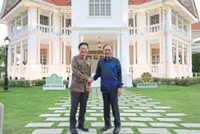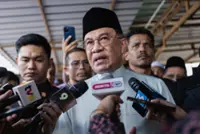‘Championing national language important for nation-building’
CYBERJAYA: “Return to Sender” – this is the directive to government departments if they receive official letters in languages other than Bahasa Malaysia, says Datuk Seri Anwar Ibrahim.
Already a subscriber? Log in
The Star Festive Promo: Get 35% OFF Digital Access
Cancel anytime. Ad-free. Unlimited access with perks.
Follow us on our official WhatsApp channel for breaking news alerts and key updates!
Thank you for your report!





